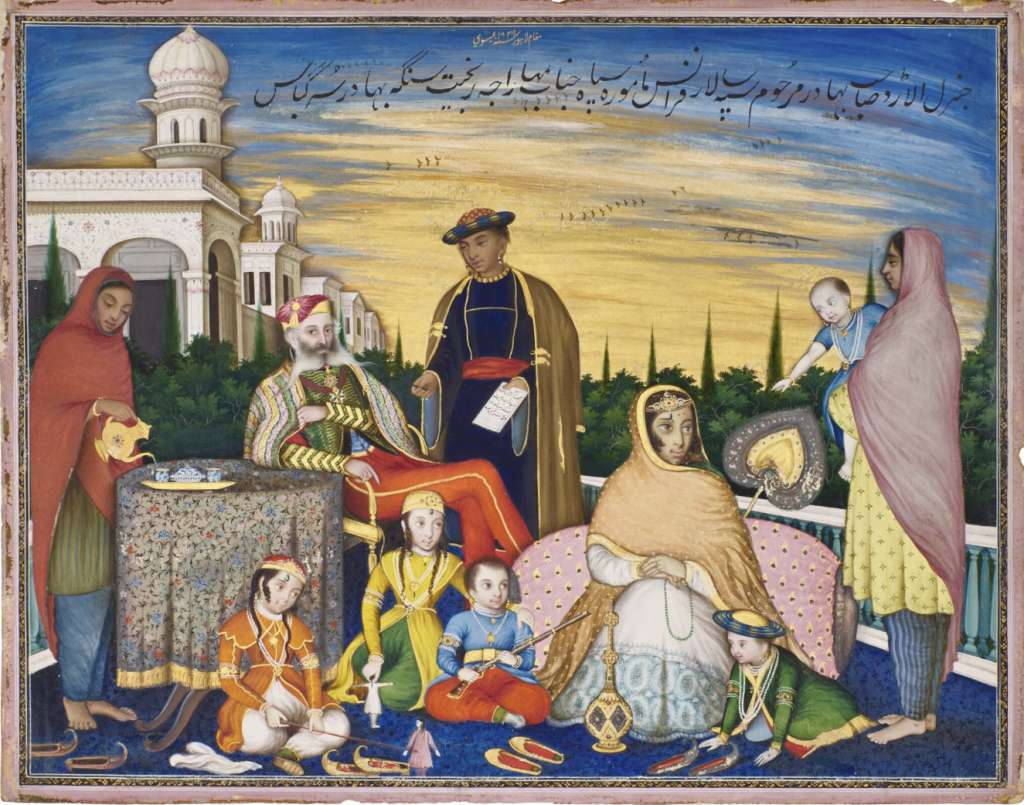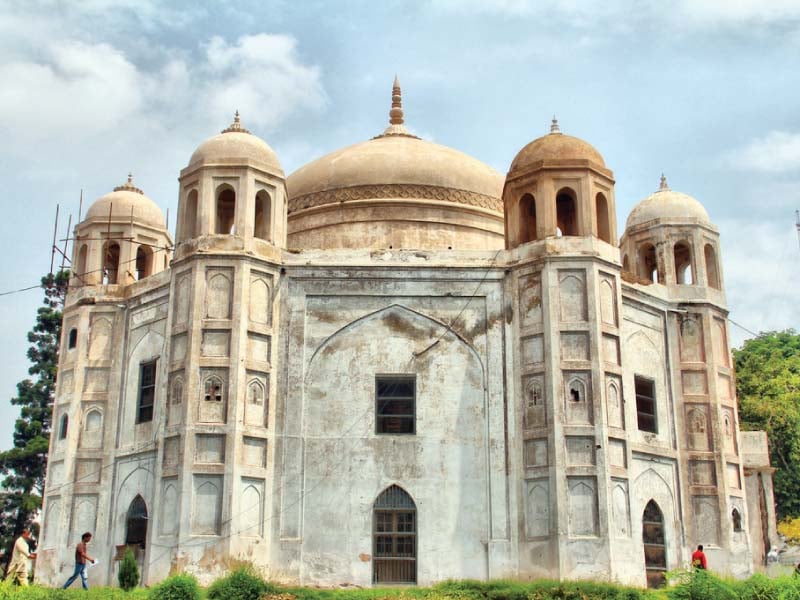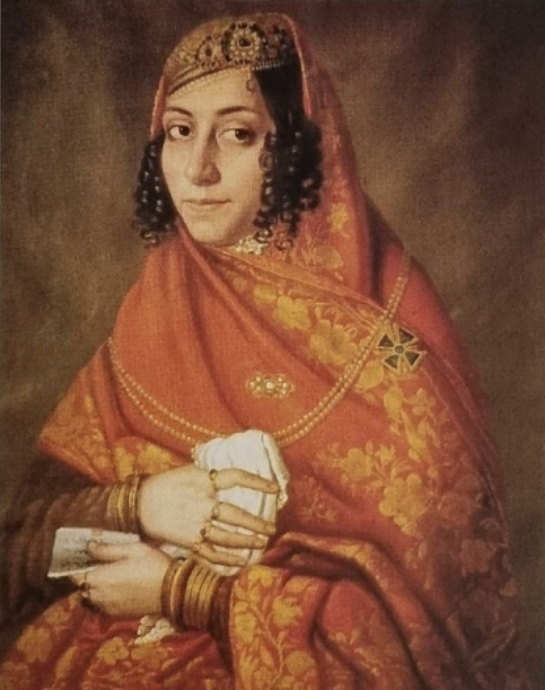ALLARD, BENJAMIN (1796-1877), step-brother of General Allard, born at Saint Tropez in 1796, was sent to Lahore in 1829 in order to replace his brother as the military adviser of Maharaja Ranjit Singh, but the two brothers failed to win the confidence of the Maharaja, who would not release General Allard from his duties. Benjamin then acted as his brother\'s deputy for various commercial missions between Lahore and Calcutta, along with Falcon and Meifredy.
ALLARD, JEAN FRANCOIS (1785-1839), Chevalier of the Legion of Honour, an order instituted in 1802 by Napoleon I, was born at Saint Tropez, France, on 8 March 1785. In 1803, he joined the French army and served in it fighting in the Imperial Cavalry in far flung fields in Italy, Spain and Portugal until its final defeat at the hands of the allies in 1815 when the Imperial Guard, in which he had been serving as a lieutenant since 1810, was disbanded.
ANARKALI, the oldest Mughal tomb in Lahore, was built between 1605 and 1615 by Emperor Jahangir for his former favourite dancing girl Anarkali. The tomb was surrounded by extensive gardens enclosed within a high protective wall, and several buildings and palaces were erected in the gardens by Mughal princes and nobles. In 1799, Maharaja Ranjit Singh put up his headquarters there while besieging Lahore. Subsequently, he offered Anarkali to his eldest son, the heir apparent Kharak Singh.
COURT, CAROLINE FEZLI AZAMJOO (1821-1869), born as Fezli Azamjoo in Kashmir on 13 June 1821, married Claude Auguste Court, a general in the Sikh army, by 1836. They had three children by the time they left the Punjab in 1843. On 25 June 1844, Fezli and her children were baptized at Marseilles, and she was on the same day religiously married to General Court by the Bishop in the Cathedrale of Marseilles. A fourth child was born in Marseilles in 1845. Little else is known about Fezli Azamjoo`s life at Marseilles.
EUROPEAN ADVENTURERS OF NORTHERN INDIA, 1785 to 1849, by G. Grey, first published in 1929 and reprinted by the Languages Department, Punjab, Patiala, in 1970, contains biographical sketches of over one hundred Europeans who came to or served in the Punjab during Sikh times. The book, which is the result of "some six years of labour" in the archives of the Punjab Government as well as the consultation of a large number of contemporary memoirs and other works, supplements Compton`s European Adventurers which the author found both out of date and incomplete. Broadly speaking, these adventurers fall into two groups: well known men like George Thomas and Avitabile and the lesser known men "of whom no account has hitherto appeared." They could also be classified as combatants and noncombatants; the former category includes Generals like Ventura and Potter and the latter class includes medical men like Honigbergcr and Harlan, the antiquarian Masson and the engineer Bianchi.
ALLARD, ACHILLE, a young Muslim boy whose parents had been killed in one of the battles of Multan, and who was saved by Maharaja Ranjit Singh, had been born at Sayyidpur in the then province of Multan. General Allard noticed his intelligence and asked the Maharaja\'s permission to adopt him. Jacquemont saw him in Lahore, and Honigberger performed upon him a delicate surgical intervention. In 1834, he was christianized and rebaptized Achille by his adopted family.
ALLARD, BANNOU PAN DEI (1814-1884), born of Raja Menga Ram of Chamba and Banni Panje Dei at Chamba on 25 January 1814, married Jean Francois Allard, one of Maharaja Ranjit Singh\'s French generals, in March 1826, and bore him seven children, two of whom died in infancy and are buried in Lahore along with their father. Allard and his wife also adopted a little orphan, Achille. In 1834, Bannou Pan Dei, her children and two of her female attendants accompanied Allard to France.







